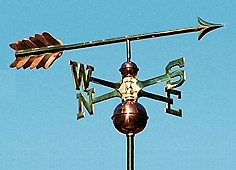News
Q From Jim Butterworth: I wonder if you could tell me where the word news comes from? Could be more than one new piece of information or could it be made up from North, East, West, South or maybe derived from some early English word? I really don’t know but I feel I should!
A People mention the points-of-the-compass story so often as the source of news that it’s not surprising it makes you wonder if it’s correct. For the record, it isn’t.
New is definitely early English — it can be traced to the Old English of the ninth century. It was mainly an adjective, as it still is, but it could also be a noun in the sense of a new thing. The first example of the noun in the Oxford English Dictionary is in a translation by King Alfred of a book by the fourth-century Roman statesman Boethius. By the twelfth century news was being used in the plural to mean new things or novelties.
The word is much more ancient still. It came from Germanic sources that can be traced back to an ancient Indo-European root. This also led to Latin novus, and through it words like novel, novice, renovate, innovate (and novelty). Its Latin feminine form nova is now used by astronomers to describe a star that shows a sudden large increase in brightness (so called originally because it was thought to be a new star).
By the thirteenth century, news, while still being plural, had taken on its modern sense of reports or accounts of interesting or important events. “Ay me! What is this world! What news are these!” cried Queen Margaret in Part Two of Shakespeare’s King Henry the Sixth. It was still being pluralised as recently as the nineteenth century. Princess Victoria wrote in a letter in 1837, “I am very sorry that the Portuguese news are still so very unfavourable.” In The Prime Minister of 1876 by Anthony Trollope occurs the sentence “They were in a state of enthusiasm at these news, amounting almost to fury.” But from the sixteenth century, this plural usage ran in parallel with our modern one of treating it as a singular mass noun, which has now, of course, prevailed.

Definitely not the source
Where did this idea of its being an acronym come from? George A Thompson recently found the story falsely asserted in the Morning Courier & New-York Enquirer, dated 23 April 1842: “News is not, as many imagine, derived from the adjective New. In former times, it was a prevalent practice to put over the periodical publications of the day the initial letters of the cardinal points of the compass ... importing that these papers contained intelligence from the four quarters of the globe; and from this practice is derived the term of newspaper.”
So far as anybody knows, no such emblem existed. And it certainly isn’t the origin of the word. But the story has long legs and — to judge by this quotation — clearly a long history, too.
